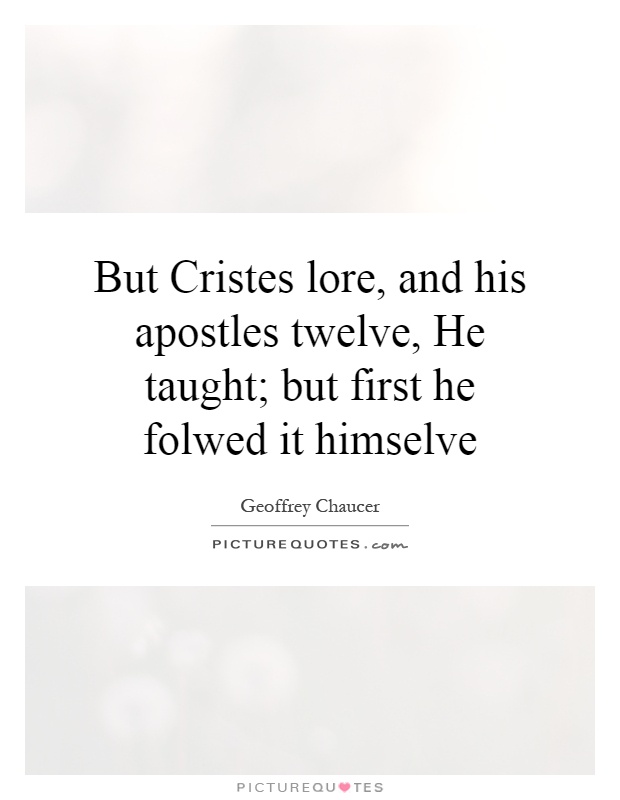But Cristes lore, and his apostles twelve, He taught; but first he folwed it himselve

But Cristes lore, and his apostles twelve, He taught; but first he folwed it himselve
Geoffrey Chaucer, often referred to as the father of English literature, was a poet and author who lived in the 14th century. His most famous work, "The Canterbury Tales," is a collection of stories told by a group of pilgrims on their way to the shrine of Thomas Becket in Canterbury Cathedral. Chaucer's writing is known for its wit, humor, and keen observations of human nature.One of the themes that Chaucer explores in "The Canterbury Tales" is the importance of living according to the teachings of Christ and his apostles. In the Prologue to the Tales, Chaucer writes, "But Cristes lore, and his apostles twelve, He taught; but first he folwed it himselve." This line emphasizes the idea that true wisdom and moral authority come from following the teachings of Christ and his disciples.
Chaucer himself was a devout Christian, and his writing often reflects his faith. In "The Canterbury Tales," he presents a diverse group of pilgrims, each with their own flaws and virtues, who are on a journey to seek spiritual enlightenment. Through their interactions and stories, Chaucer explores the complexities of human nature and the challenges of living a moral life in a corrupt world.
The line "But Cristes lore, and his apostles twelve, He taught; but first he folwed it himselve" can be seen as a reflection of Chaucer's own beliefs and values. Like the character of the Parson in "The Canterbury Tales," who is described as a devout and humble man who practices what he preaches, Chaucer believed in the importance of living according to the teachings of Christ.
Overall, Chaucer's work is a testament to the enduring power of faith and morality in a world that is often marked by greed, corruption, and hypocrisy. Through his writing, he encourages readers to reflect on their own beliefs and actions, and to strive to live according to the principles of love, compassion, and forgiveness taught by Christ and his apostles.












 Friendship Quotes
Friendship Quotes Love Quotes
Love Quotes Life Quotes
Life Quotes Funny Quotes
Funny Quotes Motivational Quotes
Motivational Quotes Inspirational Quotes
Inspirational Quotes